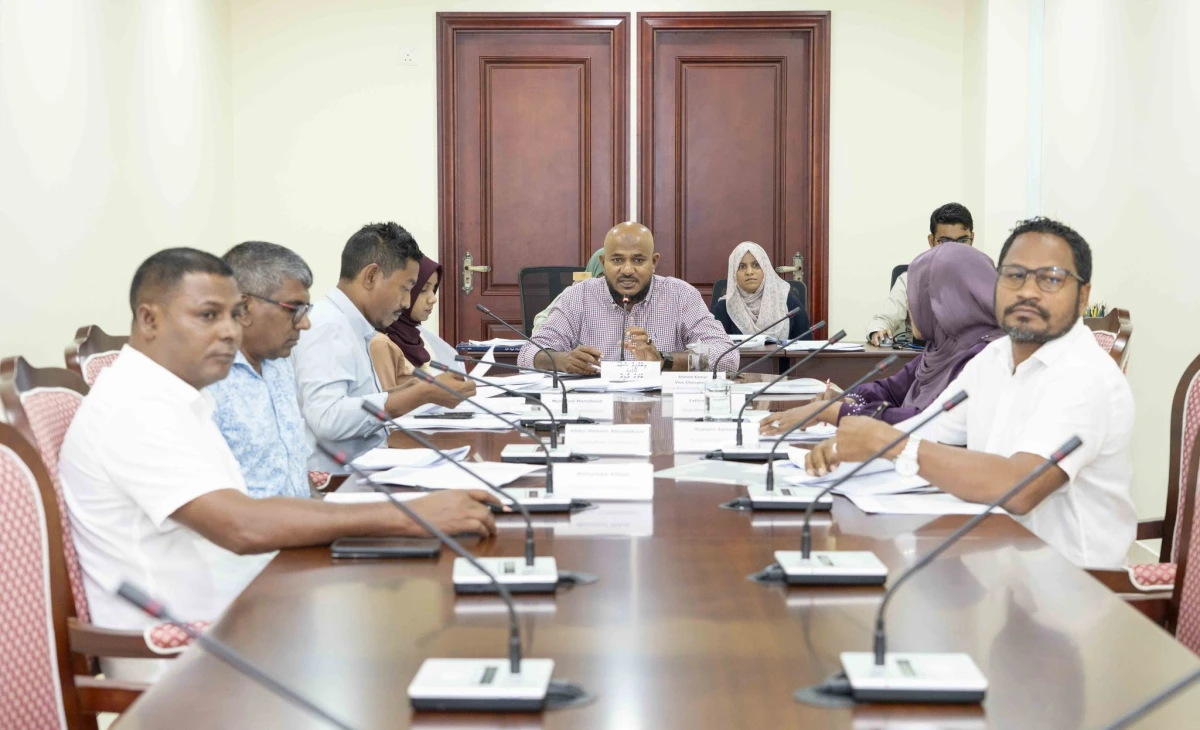Tue, 20 Jan 2026
|DHIVEHI
Committee approves amendments to restructure local councils
25 Nov 2025
|

Select Committee on Bill on Amendment to the Decentralization Act and Bill on Amendment to the Local Council Election Act --- Photo: People's Majilis
The Government’s proposed amendments to dissolve the Atoll Councils and revise the composition of island and city councils have passed the committee stage.
The amendments were endorsed by the Select Committee tasked with reviewing the bills to amend the Decentralization Act and the Local Council Election Act. Both bills were passed with the support of a majority of committee members present.
Under the proposed amendment to the Local Council Election Act, all existing references to Atoll Councils in the Act will be removed.
The most extensive changes are included in the amendments to the Decentralization Act, submitted on behalf of the Government by PNC Parliamentary Group Leader MP Ibrahim Falah. Under the proposal, island councils in islands with populations below 2,000 would consist of three councillors, including the council president. Islands with larger populations would elect five councillors, including the council president. The current law sets a standard of five councillors for all island councils.
The amendment also sets out the number of reserved seats for women. Three-member island councils would reserve one seat for women, while five-member councils would reserve two seats, consistent with existing rules.
Changes have also been proposed to the Women’s Development Committees (WDCs). The number of WDC members on each island would match the number of councillors on the respective island council. The WDC president would be elected in the same manner as the council president, and the position would be full time.
During its review, the committee introduced additional amendments relating to city councils. Under the proposal, cities with populations between 10,000 and 25,000 would elect seven councillors, including the mayor. Cities with populations between 25,000 and 50,000 would elect 11 councillors, while those with populations above 50,000 would elect 15. These provisions exclude Malé City and Fuvahmulah City. Additionally, reserved seats for women in city councils would be allocated according to a rule determined by the Elections Commission of Maldives.
The proposed amendments also include provisions on councillors switching political affiliation. A councillor elected on a political party’s ticket would lose their seat if they leave or change their party, while an independent councillor would lose their seat if they join a political party.
The bills will now proceed to the next stage of the legislative process following committee approval.








